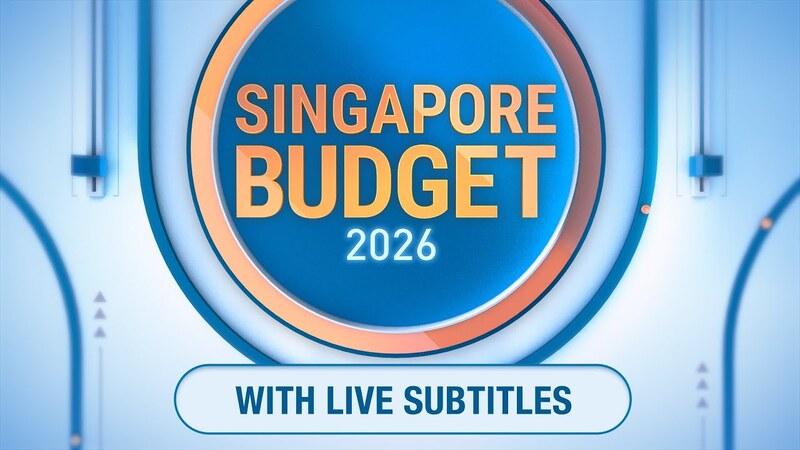From All-Star Tower Defense to All-Star Employees: How Gaming Culture Builds Soft Skills Employers Need in 2025
Once considered a pastime for kids or the occasional guilty pleasure, gaming has now gone mainstream — and it’s reshaping how we think about work.
In Singapore, more than half the population plays video games, and Gen Z professionals entering the workforce are growing up on titles like All-Star Tower Defense, Valorant, Minecraft, and Genshin Impact. But here’s what’s surprising: recruiters and employers are starting to value soft skills honed in these virtual arenas — because they directly translate to real-world performance.
At Reeracoen, a leading recruitment agency in Singapore and APAC, we’ve observed a growing trend: candidates who game often bring high emotional intelligence, strategic thinking, collaboration skills, and adaptability — all of which rank among the top soft skills needed in 2025’s future of work.
🎮 Gaming Is Now a Soft Skills Powerhouse
The World Economic Forum’s Future of Jobs Report projects that skills like creativity, problem-solving, critical thinking, and resilience will be more crucial than technical know-how in the coming decade. Interestingly, those exact traits are frequently exercised in popular games.
Let’s break it down:
For example, in All-Star Tower Defense, players must strategise placements, collaborate with teammates, and manage limited resources against waves of enemies — not unlike project management in real life.
🧠 Why Singapore Employers Should Pay Attention
In Singapore’s tight labour market, companies often struggle to find workers with strong soft skills. According to a recent NTUC LearningHub survey, 93% of employers believe soft skills are essential, but only 48% say their workforce has them at the desired level.
By 2025, it won’t just be about hiring based on degrees — but about recognising alternative skill indicators like gaming.
Benefits of Gaming-Honed Employees:
- Adapt Quickly: Gamers are used to learning on the fly and adapting to fast-changing conditions.
- Stay Calm Under Pressure: They’ve already dealt with boss fights and raid mechanics.
- Collaborate Effectively: Guilds, squads, and raids are all about teamwork.
- Take Initiative: In open-world or co-op games, players create their own missions — much like self-starters in modern jobs.
💼 What This Means for Hiring and Development
For Employers:
- Revise Interview Questions: Ask candidates about their hobbies and what games they play — then follow up with how they solve in-game challenges.
- Consider Gamified Assessments: Tools that simulate real workplace scenarios through game-like environments can better gauge problem-solving and adaptability.
- Use Games for Team-Building: Titles like Keep Talking and Nobody Explodes, Overcooked, or even Among Us can be used in workshops to observe group dynamics.
For Candidates:
- Don’t downplay your gaming background — especially if you’ve led a guild, organised tournaments, or created mods or Discord communities.
- Learn to articulate transferable skills: Instead of saying “I play Valorant,” say “I lead a 5-person team in a strategy-heavy game where I make tactical decisions under time pressure.”
Want to work for companies that appreciate what makes you unique? 👉 Check out top roles at Reeracoen Singapore
📱 Gaming in Singapore: Key Stats
- Over 3.4 million Singaporeans play video games (Statista, 2025).
- Mobile gaming is the most popular, followed by PC and console titles.
- The gaming market in Singapore is expected to reach S$650 million in revenue by 2026.
- eSports is booming — with universities like NUS and SMU offering eSports scholarships and clubs.
Even government bodies such as IMDA are investing in gaming talent through initiatives like PIXEL and the Singapore Games Association (SGGA).
🤝 What Companies Can Do Right Now
- Rethink CV filters: Consider creating space on job application forms for hobbies like gaming.
- Reward non-linear thinking: Gamers often find creative solutions outside the norm — foster that.
- Tap into gaming language: Use terms like “missions,” “sprints,” and “XP” to make onboarding or training more relatable for younger talent.
Want to attract fresh talent with these emerging soft skills? 👉 Talk to Reeracoen about hiring for tomorrow’s workforce
🙋 FAQ: Gaming and Soft Skills at Work
Q1: Are gamers actually better employees?
A: Research from universities like Glasgow and Rochester shows gamers tend to outperform in areas like decision-making, multitasking, and emotional regulation — especially under pressure.
Q2: Which games are most helpful for workplace skills?
A: Strategy games (like All-Star Tower Defense), co-op games (like Overcooked), and world-builders (like Minecraft or The Sims) are excellent for developing transferable skills.
Q3: Is it risky to mention gaming during a job interview?
A: Not anymore — as long as you frame it in terms of skill development, leadership, or collaboration. Just don’t spend the entire interview talking about it.
Q4: Can gaming be used in corporate training?
A: Yes. Many companies are adopting gamified training platforms or using serious games to build soft skills.
Q5: How do I add gaming skills to my CV or LinkedIn?
A: Try something like: “Led a 12-member online gaming team, coordinating strategies, communication, and conflict resolution in high-stress scenarios.”
🎮 Final Thoughts: Level Up, IRL
As the boundaries between work and play blur, employers must start recognising that soft skills don’t just come from seminars or MBAs — they’re built-in unexpected places like team games, raid dungeons, and sandbox worlds.
And if you’re a gamer? That hobby might just be the XP boost your career needs.
Disclaimer:
The information provided in our blog articles is intended for general informational purposes only. It is not a substitute for professional advice and should not be relied upon as such.
While we strive to provide accurate and up-to-date information, the ever-evolving nature of certain topics may result in content becoming outdated or inaccurate over time. Therefore, we recommend consulting with qualified professionals or experts in the respective fields for specific advice or guidance. Any actions taken based on the information contained in our blog articles are solely at the reader's discretion and risk. We do not assume any responsibility or liability for any loss, damage, or adverse consequences incurred as a result of such actions.
We may occasionally provide links to external websites or resources for further information or reference. These links are provided for convenience and do not imply endorsement or responsibility for the content or accuracy of these external sources. Our blog articles may also include personal opinions, views, or interpretations of the authors, which do not necessarily reflect the views of our organisation as a whole. We encourage readers to verify the accuracy and relevance of information presented in our blog articles and to seek professional advice when needed. Your use of this website and its content constitutes acceptance of this disclaimer.
📎 Reference Links (Consolidated)





